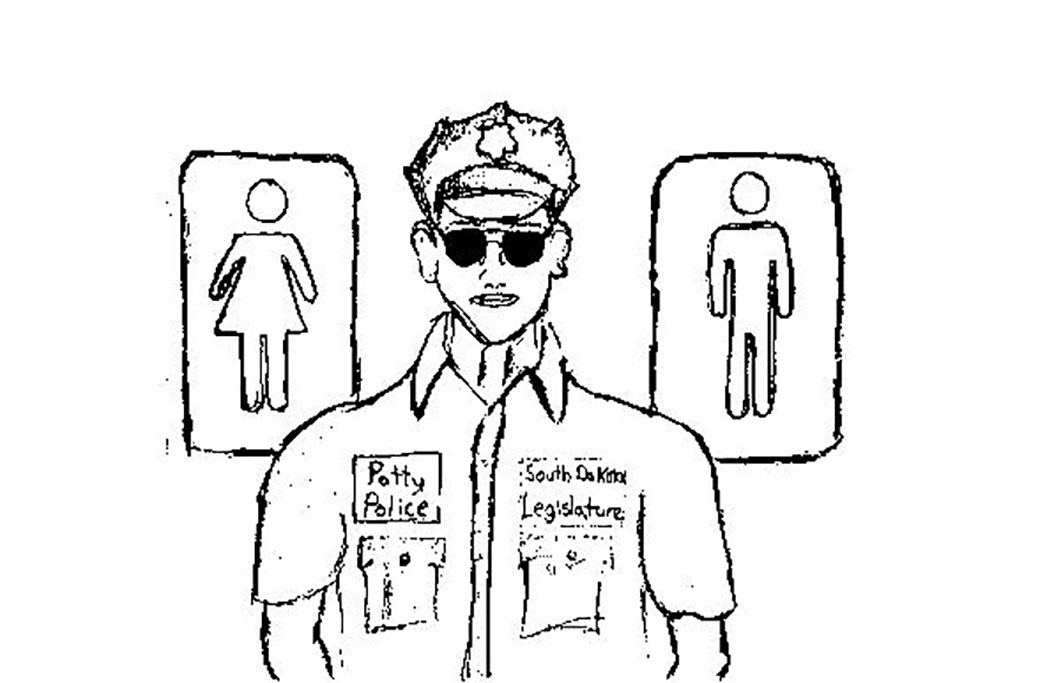
Transgender restroom bill should be condemned
A bill passed by the South Dakota House of Representatives which aims to restrict transgender individuals from entering certain restrooms and locker rooms in K-12 public schools is discriminatory and should be condemned by USD students, as well as all South Dakotans.
If this bill is allowed to be implemented without opposition, it might only be a matter of time before a similar bill concerning public universities is introduced in the legislature.
The bill says, “The term, biological sex, as used in this Act, means the physical condition of being male or female as determined by a person’s chromosomes and identified at birth by a person’s anatomy.” This means if individuals identify as transgender, they are required to go into the restrooms of their biological sex.
It also says that schools must provide transgender students with “reasonable accommodations,” which can include single-occupancy restrooms, unisex restrooms or the controlled use of restrooms, locker rooms or shower rooms that are designated for use by faculty.
This, of course, indicates a great amount of discrimination for transgender individuals, because people are choosing not to recognize their gender identities. This bill also prevents transgender students from truly being themselves while doing a mundane activity.
The debate on whether or not to allow transgender individuals to go to the restrooms of their gender identities is nothing new, and neither is the discrimination transgender people receive on a daily basis.
According to Time, a reason for these chronic bathroom bills is, “Because of the nature of things people do in the bathroom, it can be a space where they feel exposed or vulnerable and therefore resist change.”
This bill stems from ignorance and a refusal to accept transgender individuals.
Implementing or introducing these restroom bills puts transgender students at risk for hate crimes or harassment. According to UCLA’S Williams Institute, “nearly 70 percent of transgender people said they had experienced verbal harassment in a situation involving gender-segregated bathrooms, while nearly 10 percent reported physical assault.”
If a male who identifies as female isn’t allowed to use the woman’s restroom, who’s to say they won’t face harassment or physical assault in the men’s restroom?
This bill also brings up the question of who will be made to check the genitalia of each individual who enters the restroom. Opponents of it have already taken to calling the SD Legislature the “Potty Police,” a fitting description for a group of representatives who consistently complain about government interference, but don’t think twice about trying to interfere in the lives of the LGBTQ+ community.
This bill might also take away learning opportunities for transgender individuals in the classroom, as some have already had to make the difficult choice of either leaving school to go to the restroom or staying in class, such as 18-year-old Thomas Lewis at Lincoln High School in Sioux Falls. Lewis has to commute back to his home just to use the bathroom, which inevitably causes him to miss out on school time.
For too long the South Dakota Legislature has tried to legislate affairs of which they have no business legislating. People are people, and taking away the right to an everyday activity will only lead to more serious forms of discrimination against the LGBTQ+ community.
Students from USD should contact their local representatives and tell them that discrimination in all its forms is unacceptable and will not be tolerated in South Dakota.
